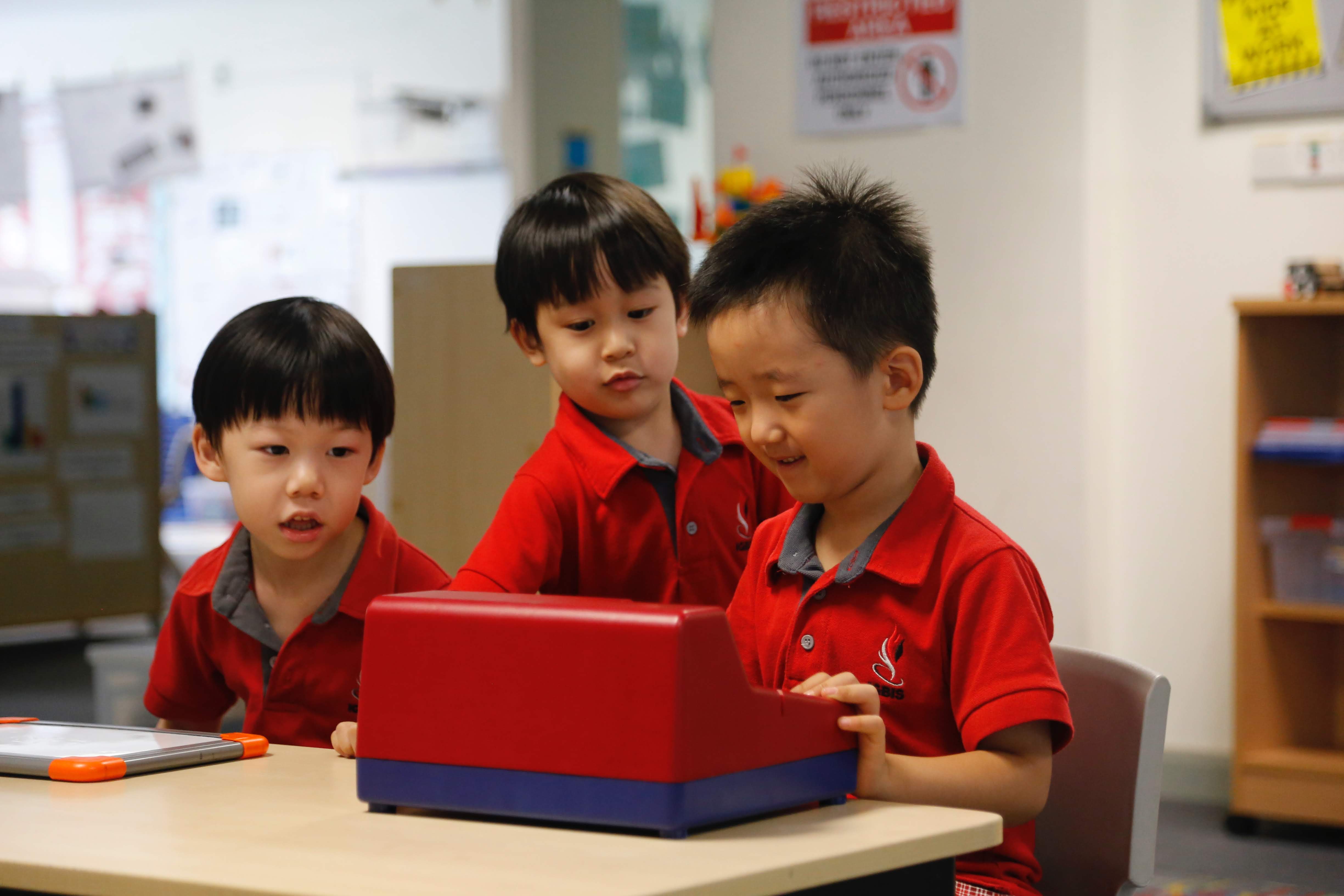Elementary School


Elementary School Principal
We have assembled a dedicated, passionate and professional team of PYP educators who work tirelessly for the betterment of the students in their care. We have been purposeful in creating a caring, supportive and inspiring environment where students feel safe in the knowledge that they can make mistakes, learn from them and discover who they are. The relationship between home and school is vitally important to us and we want families to be a part of their children’s education, learning alongside them and fostering a family atmosphere within the school.
Key features of our Primary Years Programme (PYP) are the emphasis of students as learners (agency) where they have a voice in their own education, an inquiry based teaching methodology where students seek answers to their wonderings through the knowledge base of units of inquiry. These units of inquiry focus on big ideas, ‘concepts’ rather than pure knowledge content. To assist students to develop their own independence as learners there is an emphasis on the approaches to learning skills (communication skills, research skills, thinking skills, social skills and self management skills)—these are what some people describe as the 21st Century skills. The adaptability of using these soft skills that students will need beyond school are extremely important.
I am proud to say that we are an inclusive school. Our mission is “To provide an inclusive learning community, embracing diversity by offering a challenging IB education which empowers its members to be caring global citizens”.
Our curriculum is organised in the form of a developmental continuum where students can access the curriculum at their developmental level. We establish what they know and can do and then provide challenge for them to progress.
Finally through all of our programmes we emphasise the character traits (IB Learner Profile) we want students to be exhibiting in and outside of school (communicators, risk takers, principled, caring, balanced, thinkers, inquirers, knowledgeable, and open minded). Through demonstrating these we hope they will be caring global citizens that act for the betterment of others.
Units of Inquiry
In the PYP most of the teaching and learning centres around the design of the transdisciplinary units of inquiry. Each of these units:
- Stands alone as an engaging, challenging, relevant and significant experience;
- Contributes to a coherent, school-wide programme of inquiry that is framed in terms of transdisciplinary themes of global significance;
- Draws together elements of different subject areas to support the exploration of a central idea;
- Is planned by teams of teachers working in collaboration, guided by a set of key questions that is conceptually driven;
- Involves students in a range of learning experiences planned in response to the lines of inquiry;
- Builds on prior knowledge of the students;
- Is constructed and conducted in a way as to promote positive attitudes and provide opportunities for socially responsible action; and
- Requires students to reflect and take responsibility for their learning.
Assessment
Students are assessed in many ways so that teachers can build a picture of a student’s achievements, knowledge and understanding. A range of assessment tools and strategies are used which allow students with different learning styles to succeed. All assessments are based on criteria for success, which are shared with the students in an age appropriate manner. Assessments focus on what student can do and inform the teaching and learning experience. Assessment includes:
- Pre-assessment: identifying what students already know in order to clarify the starting point for teaching and learning experiences.
- Formative assessment: ongoing assessment which helps the teacher to plan for the ongoing needs of the students and to help to plan the next steps for student learning.
- Summative assessments: finding out how far students have progressed at the end of a unit of teaching.
- Self and peer assessment: students are involved in making assessments about their own progress and that of their peers.
Exhibition
- Exhibit the attributes of the IB Learner Profile that have been developing throughout the PYP;
- Incorporate key concepts;
- Synthesise aspects of all six transdisciplinary themes;
- Use skills from all five sets of transdisciplinary skills;
- Explore knowledge that is significant and relevant
- Display attitudes that relate to people, the environment and their learning;
- Engage in appropriate courses of action based on outcomes of their project.